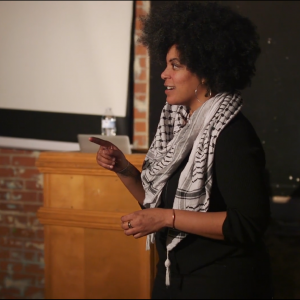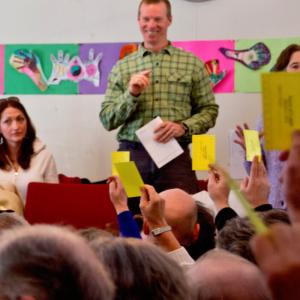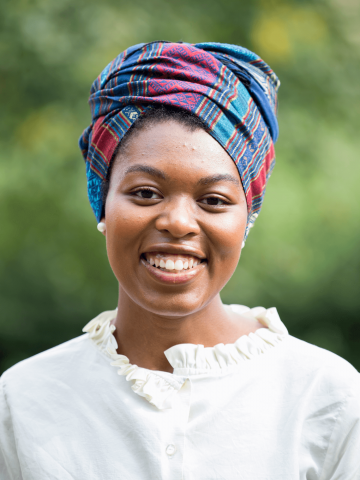
Faith-Marie Zamblé is an artist, writer, and M.F.A. candidate in dramaturgy and dramatic criticism at the Yale School of Drama.
Posts By This Author
Kneeling in a Field of Prayers
An Installation Captures the Sounds of Chicago's Religious Devotion
At the Art Institute of Chicago, James Webb has fit the sound of Chicago’s religious devotion into one room. The city’s religious life spouts from speakers fixed to the floor. Museumgoers shuffle across the expanse of red carpet, pausing over one mushroom shaped speaker and then another — like bees gathering pollen, intent on producing cultural understanding and greater empathy.
The Next Generation of Rural Organizing
An interview with Ash-Lee Woodard Henderson.
Ash-Lee Woodard Henderson is co-executive director of the Highlander Research and Education Center in Tennessee, an organization founded in the 1930s as a “folk school” to train labor organizers throughout Appalachia and the South. In the 1950s, Highlander was an incubator for the civil rights movement, with trainings led by Septima Clark and Ella Baker. By the 1990s, the center supported anti-strip-mining battles in Appalachia and linked mountain organizers with anti-globalization efforts around the world. Today, Highlander draws on the strengths of immigrants, students, and other local leaders in the rural South to build popular education programs that advance cultural organizing for justice. Former Sojourners editorial assistant Faith Zamblé interviewed Henderson in July.
Faith Zamblé: How would you describe your work at the Highlander Center?
Ash-Lee Woodard Henderson: I describe it as a grand inheritance. I was 31 or 32 when I became the first black woman to be co-executive director of the Highlander Center. And I inherited 86 years of people’s stories and experiences and movement legacy. But with that legacy comes a great responsibility to make sure that the Highlander Center isn’t just a living museum, where people come to study what was; it should also be a place where people can learn how to do things now. It’s living in the past, present, and future at the same time, every day, all day.
What Minimalism Lacks
The trendy aesthetic often means giving up everything ... except privilege.
CERTAIN STRAINS of consumerism are easy to spot. Think Beverly Hills and walls stacked with brightly colored shoes and purses, like heaps of fresh produce. Closer to home, perhaps, is the caricature of suburban consumption—gas-guzzling SUVs, expensive outerwear.
And then there’s minimalism, an ideology defined by its emphasis on intentional efforts to spend less. At its best, minimalism provides a healthy alternative for people of faith seeking simplicity and thoughtful economic practices. At its worst, the minimalist aesthetic looks an awful lot like the system it was designed to critique—oblivious, privileged, and disconnected from reality.
#WomenCrushWednesday: Ella Baker, Prophetic Voice Against the Killing of 'Black Mothers' Sons'
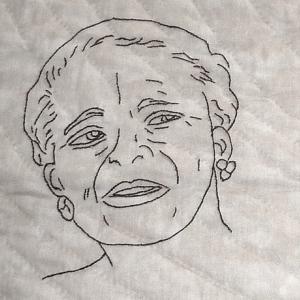
Image via Adair733/Flickr
There is no Selma for Ella Josephine Baker. But there would likely have been no Selma without her, either. And maybe that matters just as much.
How to Combat Political Apathy
How do we reconcile our vote with our conscience?
IN A TIME of voter suppression, gerrymandering, and persistent political scandals, it’s easy to wonder if voting matters anymore. Many people don’t vote at all, citing everything from long lines to ethical squeamishness. But not voting is still a vote, with real consequences for our democracy. Here are a few ways to reframe the way we think about voting:
1. Make it more than a vote
Voting is just one aspect of civic participation. Extend the action by engaging in your community. Participate in events at recreation centers, run for school board, and attend public forums on local policy. Don’t make a ballot the only place you voice concerns—communicate with local officials and speak up at city council meetings. Think wisely about how you spend your money and your time, and make civic commitment an everyday mindset rather than an annual event.
2. Think globally
Thinking about one’s individual ballot, by itself, can make voting feel uncomfortably personal and easy to dismiss. Instead, consider how your vote impacts those outside the voting booth. Many people are unable to vote in some or all elections, including legal permanent residents, U.S. citizens living in U.S. territories, and, in many states, formerly incarcerated persons. Think critically about how proposed policies will impact these individuals. Be mindful of a candidate’s disposition toward the world. U.S. foreign policy is felt worldwide—vote with our global neighbors in mind.
3. Recognize that voting is an extension of your faith
While you won’t find a Bible verse commanding Christians to vote, we are called to care for marginalized communities that may be adversely affected by social policies. Sometimes we have strong affinity for a candidate, and other times we feel that one is the lesser of two evils. To vote is to recognize that community is messy and people who run for political office are rarely perfect. In the moment, voting doesn’t always seem worthwhile or meaningful, but it is an act of hope, an expression of trust in the power of collective agency to build a more just future.
Will Christian Colleges Speak Up for Victims of Sexual Assault?
Students are leading efforts to reframe the conversation around gender-based violence.
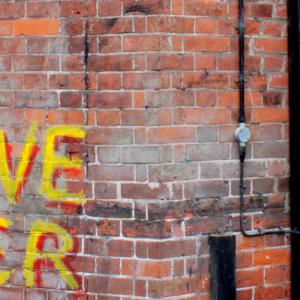
Image via Flickr/Devon Buchanan
SECRETARY OF Education Betsy DeVos this fall weakened laws that make campuses safer places for students to live and learn—particularly protections from sexual harassment. “[T]he system established by the prior administration,” DeVos said, “has failed too many students.”
DeVos is targeting Title IX, the landmark 1972 legislation to prevent gender-based discrimination in college athletics. Over time, Title IX was strengthened by the addition of the Jeanne Clery Act, a federal mandate requiring schools to be more transparent about their handling of sexual-assault cases and more proactive in efforts to change campus attitudes regarding predatory behavior.

